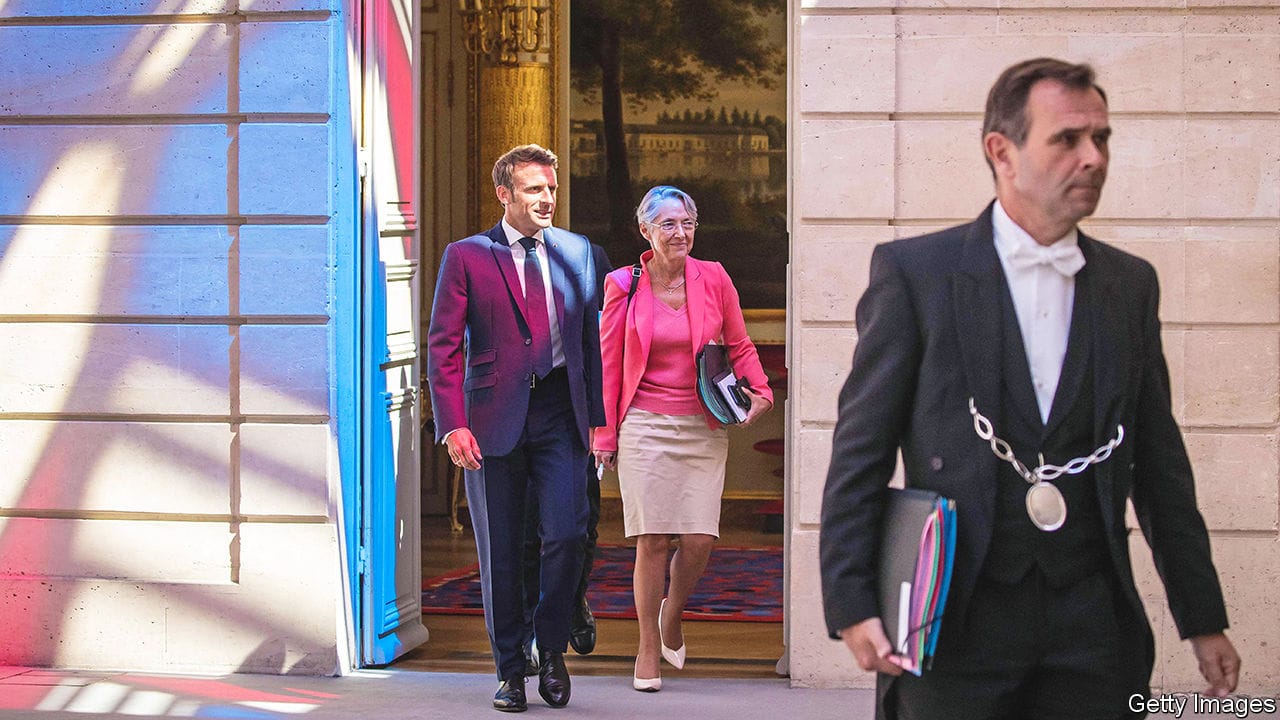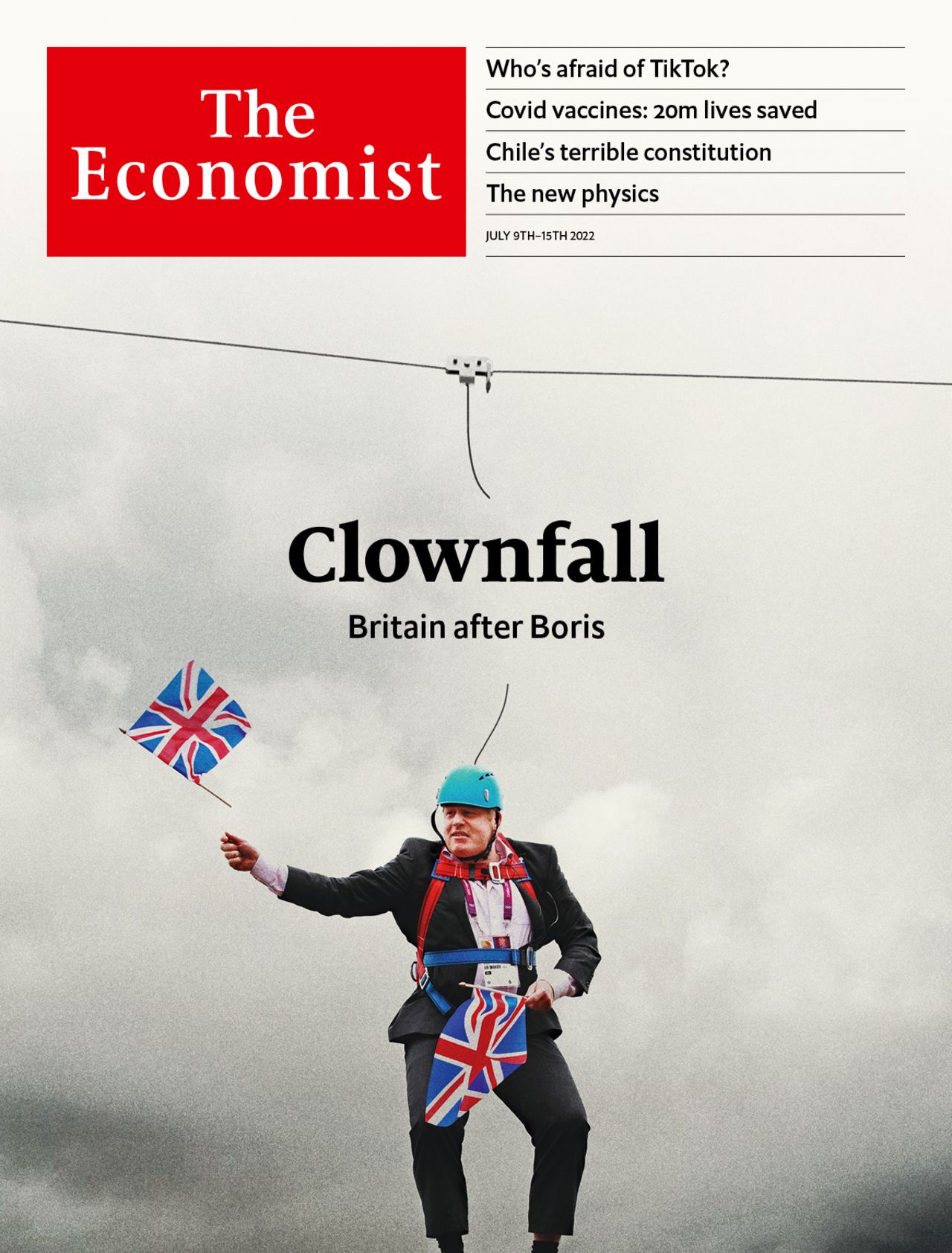France’s President Emmanuel Macron decides to go it alone
Spurned by other parties, he appoints a minority government

Late last month, before heading off on a four-country marathon of summits, Emmanuel Macron vowed to put together a coalition government that would reach from the Communists on the left to the Republicans on the right. After losing his parliamentary majority at a general election in June, the centrist French president hoped this might secure broad-church support. But on July 4th, after mainstream opposition parties on the left and right rejected his advances, Mr Macron shelved the plan. Instead he unveiled a reshuffled government made up largely of fellow centrists, which will govern with only minority support in parliament.
Many of those in top jobs remain, including Elisabeth Borne, the prime minister, Bruno Le Maire at finance, and Catherine Colonna, the foreign minister. The few outside political recruits include a former Communist, Olivier Klein, mayor of the Paris banlieue of Clichy-sous-Bois, who was named cities minister. Some loyal parliamentarians were rewarded, including Roland Lescure, who became industry minister. Given the prospect of greater parliamentarianism in France, however, this was not the heavyweight cross-party government that some had hoped to see.
This article appeared in the Europe section of the print edition under the headline "Minority report"
Europe July 9th 2022
- Ukraine prepares a counter-offensive to retake Kherson province
- Russia is disappearing vast numbers of Ukrainians
- Weapons shipments turn a Polish city into a boom town
- Polish-German relations have gone sour
- France’s President Emmanuel Macron decides to go it alone
- Alexei Navalny’s jailers are tightening the screws
- Travel chaos in Europe is a glimpse of a future with few spare workers
More from Europe

“Our Europe can die”: Macron’s dire message to the continent
Institutions are not for ever, after all

Carbon emissions are dropping—fast—in Europe
Thanks to a price mechanism that actually works

Italy’s government is trying to influence the state-owned broadcaster
Giorgia Meloni’s supporters accuse RAI of left-wing bias
